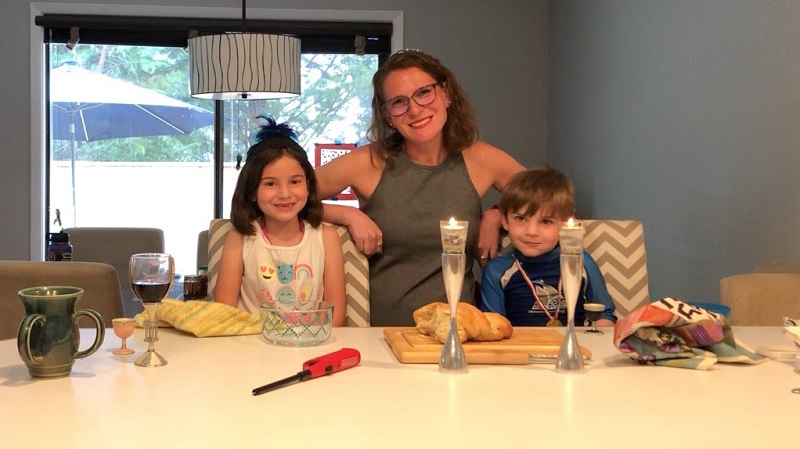I have certain voicemail messages saved on my phones – ones that hold particularly special meaning to me. Two of them are from my father. He left them a week apart (on consecutive Fridays) about two months before he died. I was working as an intern in Chicago, and he called to ask how I was doing and what I was learning, and because it was Friday, he’d end with a word about Shabbat. Part of his Shabbat message was asking how I was celebrating Shabbat with my roommate and friends, and he ended each of the voicemails with the priestly blessing.

Part of what makes these messages memorable is that growing up, my parents did not bless us each week at the Shabbat table. We had Shabbat dinner, complete with Kiddush and Hamotzi. We had friends over and celebrated Shabbat regularly, but for some reason that one small ritual wasn’t a part of our celebration. My mom later told me that my dad always regretted that decision, and so when I moved to Los Angeles for rabbinical school, he decided to send me an email blessing each week. I still treasure those emails, but the voicemails are prized possessions. I can still hear my father in his own voice and words give me a blessing anytime I need it.
I’ll admit it was especially hard to listen to those voicemails when I was in early grief. To hear my father say “May God grant you peace” while I was angry at God for my father’s death seemed incongruous. To hear him say “May God turn His face towards you and see you” when I felt so unseen seemed empty. But the blessings were still his to me.
As we read Parshat Naso this week, we read about the Israelite society trying to move forward after leaving Egypt and about the establishment of a successful community. The narrative picks up with a second counting of the people; laws about how we are to treat one another and the property that we own; the blessing of the priests to the people; and the laws of the Nazir, detailing how we might dedicate ourselves directly to God. Among these laws is the notion of connection to a community, to God, and to the greater “people.”
The most well-known piece of this text is the Priestly Blessing in chapter 6, verses 24-26. The blessing of the priest unto the people ends with the words “May God turn God’s face in your direction and put upon you peace.” The K’tav Sofer, a 19th century German commentator, remarks that peace begins in the home, then extends to the community, and finally to all the world. In other words, this moment of blessing one another is the locus of spreading peace, and it requires that we turn our heads toward each other first in order to start a movement of peace that radiates through our surroundings and into our community.
Pay close attention to the words that describe the action in this blessing: “turn God’s face in your direction.” More important than the blessing itself is simply the idea that there is no peace unless all of us are seen. Just as God cannot grant us peace without first facing us as we are, we too cannot create peace among ourselves until we are all seen, until we are all heard. Just like those few minutes my father carved out for me in the beautiful messages I still have, granting someone that love and attention is perhaps the greatest blessing you can offer.
– Rabbi Eve Posen
Source: Bless You – Parshat Naso 5781



